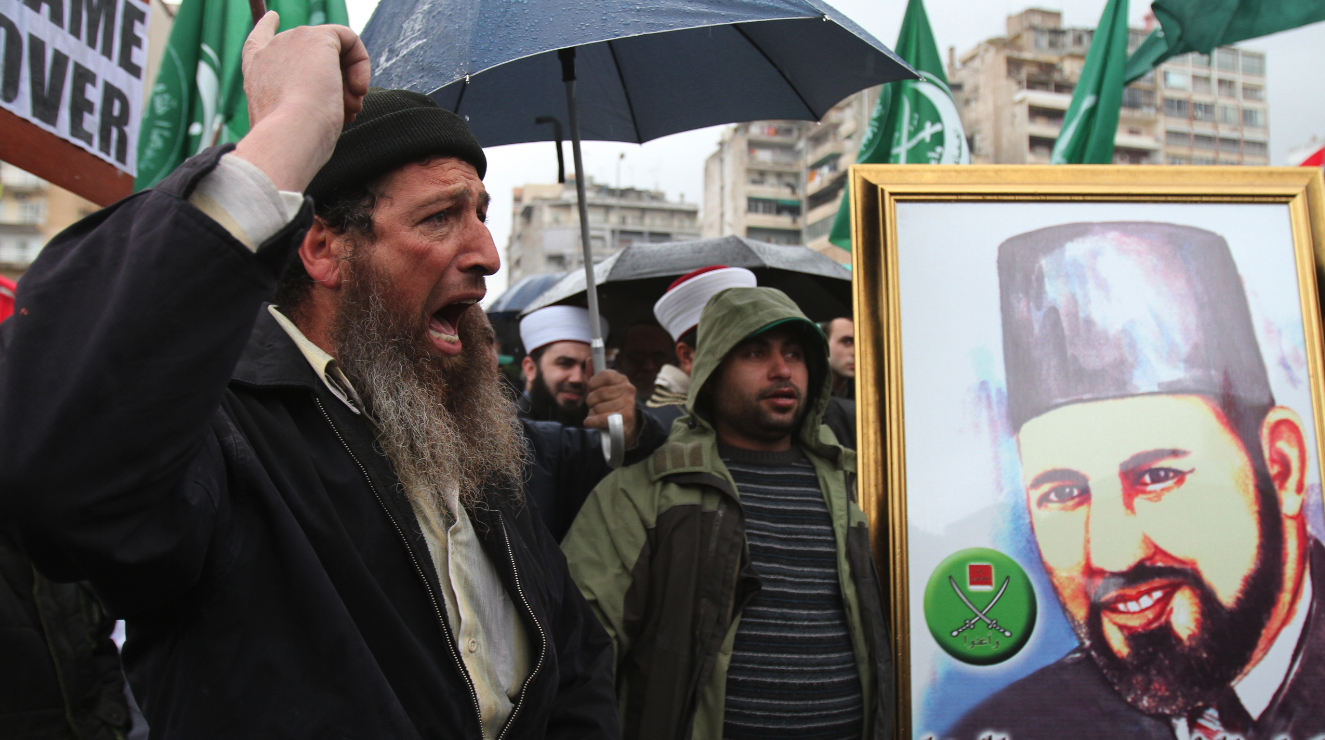Rise of Islamism in Europe: Muslim Brotherhood and Jamaat-e-Islami
Islam, as one of the world’s major religions, has always been characterized by its rich spiritual traditions and diverse cultural practices.
However, in recent years, it has garnered a reputation as a religion associated with terror and extremism. This transformation of perception can be largely attributed to the rise of Islamism, an ideology shaped by groups such as the Muslim Brotherhood (Al-Ikhwan Al-Muslimeen) and Jamaat-e-Islami.
In this article, we will explore how Islamism has gained prominence and examine its impact on Muslim communities and society at large, drawing from data provided by Pew Research.
The Muslim Brotherhood and Jamaat-e-Islami are distinct movements known for predominantly attracting members from different ethnic backgrounds, with the former primarily drawing from Arab communities and the latter from South Asian ones. Nonetheless, both movements share a common political ideology often described as “Islamist”, which advocates for the establishment of a uniquely Islamic system of governance.
Undoubtedly, the Muslim Brotherhood stands as the most influential modern Islamist organization worldwide. Its origins trace back to Egypt in 1928 when schoolteacher Hassan al-Banna founded it. Initially, the group focused on promoting Islam as a means of personal development and broader social reform.
Over time, it evolved into a politically oriented entity. The core of its ideology revolves around the establishment of Islamic states governed by shari’a, or Islamic law, serving as the foundational principle for almost all Islamist movements. Their emblematic slogan, “Islam is the solution”, reflects their commitment to applying Islam systematically across all aspects of life.
Following its inception, the Muslim Brotherhood expanded beyond Egypt’s borders, eventually establishing branches in nearly every Arab country. Moreover, it provided the ideological underpinning for several prominent Islamist movements beyond the Arab world, such as the Pakistan-based Jamaat-e-Islami, which translates broadly to “Islamic society”.
By the 1950s, the secular nationalist regime led by Gamal Abdel Nasser in Egypt perceived the politicized Islam of the Muslim Brotherhood as a significant threat to the Egyptian state’s security. Consequently, individuals suspected of belonging to the group were detained and, in some instances, subjected to torture.
In the subsequent decades, governments in other nations where the movement held sway, including Syria, Iraq, and Tunisia, adopted similar measures, leading many of the Brotherhood’s members to seek refuge in European countries like France, Germany, Switzerland, the United Kingdom, and elsewhere.
Expansion in Europe
During the 1980s, a significant number of immigrants who had initially introduced the Muslim Brotherhood to Europe came to the realization that their return to their countries of origin was unlikely, at least in the foreseeable future. Consequently, they embarked on endeavors within various European states to establish more enduring organizations inspired by the principles of the movement.
While the earliest adherents of the Muslim Brotherhood in Europe remained closely aligned with the movement’s original ideological objectives and organizational structure in the Middle East, subsequent European groups sought to adapt the movement’s agenda and priorities to resonate with new generations of Muslims born and raised in Europe.
This collective effort gave rise to some of the most prominent and recognizable Muslim organizations on the European continent. These include the Union des Organisations Islamiques de France (Union of French Islamic Organizations, established in 1983), the Islamische Gemeinschaft in Deutschland (Islamic Community in Germany, established in 1982), the Muslim Association of Britain (established in 1997), and the Ligue Islamique Interculturelle de Belgique (Intercultural Islamic League of Belgium, established in 1997).
Notable individuals among the founding members of these organizations include Kemal el-Helbawy of the Muslim Association of Britain, a former member of Egypt’s Muslim Brotherhood’s Central Guidance Bureau, and Said Ramadan of Islamische Gemeinschaft in Deutschland, who was a close personal aide and son-in-law to Muslim Brotherhood founder Hassan al-Banna, and father of the well-known contemporary Muslim intellectual, Tariq Ramadan.
Another prominent figure linked to the Muslim Brotherhood is Rachid Ghannouchi, the exiled leader of Tunisia’s Islamist party and a major intellectual influence within global Brotherhood circles, now residing in London.
Presently, national entities such as the Union des Organisations Islamiques de France are better understood as loose affiliates rather than formal branches of the Muslim Brotherhood. These national organizations serve as representative bodies for Muslims, advocating for Muslim causes, offering coordination, strategic leadership, and some financial support to numerous small, local Muslim organizations.
Particularly in France and the United Kingdom, some of these local organizations are led by individuals with no direct ties to the Muslim Brotherhood. Their activities encompass a wide range of services designed to meet the daily religious needs of Muslims, including ensuring access to halal food, operating prayer facilities, sponsoring Quranic after-school classes, distributing copies of the Quran, and providing burial services.
The large, national Muslim Brotherhood-affiliated organizations operate under the loose oversight of the Federation of Islamic Organizations in Europe, based in Brussels and founded in 1989. This umbrella organization represents Muslim entities in over two dozen European countries.
While the Federation has occasionally experienced leadership disputes and rivalries among its major national bodies, all its constituent organizations share common goals and objectives: promoting Islam as a comprehensive way of life, strengthening the Muslim community in Europe, and encouraging Muslims to engage in European society to advance Islamic causes.
In 1992, the Federation played a key role in establishing the European Institute of Human Sciences, situated in Château-Chinon, central France (near Dijon), with branches in Paris and Lampeter, Wales (U.K.). This institute promotes the study of classical Islamic scholarship among European Muslims.
Additionally, the Federation founded the European Council for Fatwa and Research in Dublin, focusing on research in Islamic jurisprudence and providing religious guidance on practical matters specific to Muslims in Europe, such as the observance of prayers and the permissibility of utilizing Western financial systems, considering Islamic restrictions on interest and usury.
Other organizations inspired by the Muslim Brotherhood have also established Islamic centers throughout Europe to meet the religious needs of local Muslim communities, offering spaces for religious classes, libraries, and shops featuring Islamic literature and religious items.
Furthermore, as of 2008, approximately 400 mosques and prayer spaces in Europe were indirectly associated with the Muslim Brotherhood. While not directly affiliated with the Muslim Brotherhood or its European coordinating structures, the Millî Görüş organization in Germany aligns with a similar ideological orientation within the Turkish community in that country.
Jamaat-e-Islami
Jamaat-e-Islami, headquartered in Pakistan and with branches extending into India and Bangladesh, stands as one of the most influential Islamic political movements in South Asia. This influence also resonates with South Asian Muslims worldwide.
In Europe, notably in the United Kingdom, where over two-thirds of the approximately 2.9 million Muslim population hails from South Asia, the group wields significant strength.
Groups associated with Jamaat-e-Islami share substantial common ground with those having affiliations to the Muslim Brotherhood. Both movements have experienced parallel developments in their evolution within Europe.
The earliest formal appearances of Jamaat-e-Islami in Europe trace back to the 1960s, marked by the establishment of the UK Islamic Mission and its subsidiary, Dawatul Islam. These organizations, which remain active today, are dedicated to promoting Islamic education, with a particular focus on Jamaat-e-Islami intellectual heritage and perspectives.
Among the older generations of Jamaat-e-Islami adherents in Europe, a strong adherence to the movement’s original ideological foundations persists. These foundations emphasized the necessity of establishing a distinct and wholly Islamic political system.
However, younger generations, especially those raised in the United Kingdom, have sought to distance themselves from the movement’s more rigid positions. These positions are exemplified in the writings of Jamaat-e-Islami’s founder, Abu Ala Mawdudi, who, alongside Hassan al-Banna, articulated the ideological framework of modern Islamism.
Notably, in the United Kingdom, two groups initially inspired by Jamaat-e-Islami—the Islamic Society of Britain and its youth branch, Young Muslims UK—have evolved to some degree into its competitors.
These emerging organizations aim to champion a uniquely “British Islam” that melds mainstream civic engagement with a robust and self-assured Muslim public identity.
While their active membership and intellectual appeal primarily attract well-educated, professional Muslims, these two groups also organize widely attended mass retreats and administer neighborhood mentoring programs in economically disadvantaged Muslim areas across the United Kingdom.
Increasing Visibility and Collaboration
In recent times, European organizations with historical ties to the Muslim Brotherhood and Jamaat-e-Islami have significantly intensified their cooperation with European governments. This trend has become especially pronounced since the 9/11 terrorist attacks in the United States, prompting European officials to actively engage with their Muslim communities.
Part of the reason behind this engagement is the presence of professional staff and middle-class leadership within these groups associated with the Muslim Brotherhood and Jamaat-e-Islami. Consequently, government officials and other influential figures within society sometimes perceive them as representatives of the entire Muslim community.
For instance, the Muslim Brotherhood-affiliated Union des Organisations Islamiques de France was among the earliest organizations to be invited to join the Conseil Français du Culte Musulman, an entity established by the French government in 2003 to advocate for the interests of the country’s Muslims in their interactions with the government.
Similarly, in the United Kingdom, the Muslim Council of Britain (many of whose leaders have ties to groups linked to Jamaat-e-Islami) became a pivotal point of engagement between the government and the nation’s Muslim population shortly after its founding in 1997.
However, this relationship experienced some strain following the 9/11 attacks and the July 2005 terrorist bombings on London’s transit system. In part, this tension arose because certain member organizations within the Council were believed to be fostering intolerance towards non-Muslims.
In parallel with Islamist organizations forging closer connections with European governments, some have also joined forces with non-Muslim activists to oppose specific government policies. For instance, a UK affiliate of the Muslim Brotherhood, the Muslim Association of Britain, played a central role in organizing numerous large-scale protests against the Iraq War.
Certainly, it’s crucial to differentiate between the Muslim Association of Britain and the Association of British Muslims, as these two organizations are distinctly separate and hold divergent positions and objectives.
Simultaneously, the Muslim Association of Britain collaborated with law enforcement and government security services in England to displace radical Muslim leaders from key mosques within the country. This initiative aimed to counteract the propagation of extremist ideologies, notably exemplified by the North London Central (“Finsbury Park”) Mosque, which had gained notoriety for its radical sermons.
Shifting Priorities?
The Muslim Brotherhood and its associated entities have often played a significant role in shaping the public discourse for European Muslims at large. However, it appears that this agenda is undergoing a transformation.
While many of the initial organizations inspired by the Brotherhood still have leadership from the first generation, many of whom were born outside of Europe, a new wave of leaders is emerging. These younger leaders, primarily born in Europe, are increasingly advocating for an agenda that prioritizes the interests and specific needs of Muslims within individual European countries, moving away from a sole focus on global Islamic issues, such as the Israeli-Palestinian conflict.
Although there is a noticeable shift in the agenda, the Muslim Brotherhood remains a contentious topic in various parts of Western Europe.
Some Europeans hold the belief that certain Brotherhood-affiliated organizations promote agendas that encourage their followers to primarily identify as Muslims, potentially impeding the assimilation of Muslims in European societies.
Furthermore, scrutiny has been directed towards Brotherhood-linked figures in Europe who have made anti-Semitic remarks, expressed support for suicide bombings in Israel, or engaged in fundraising for groups associated with Hamas, the militant Palestinian Islamic organization.
Additionally, questions have been raised about potential connections between some Brotherhood-affiliated groups in the Middle East and global terrorist networks.
In light of these concerns, leaders of Brotherhood-affiliated groups in Europe may continue to face inquiries regarding the movement’s complex history, even as they strive to make their agenda more relevant to the evolving perspectives of new generations of Muslims.



